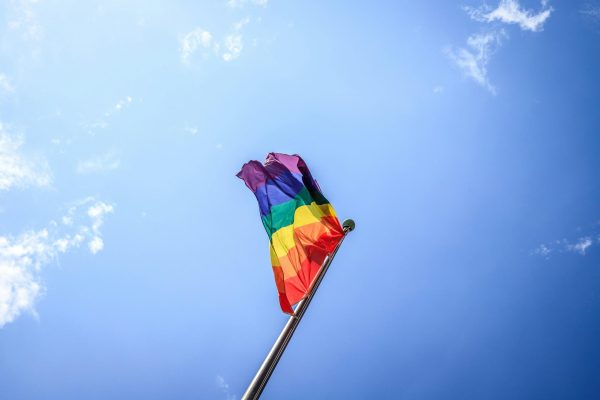Recognizing Signs in Abusive Relationships
Petito Case opens up discussion for identifying abusive relationships in teens
EVE SLEMP
At age 22, adventurous Gabby Petito and her fiancé, Brian Laundrie, took on a massive cross country road trip from Florida to the Grand Tetons.
She was found dead on Sept. 19.
The tragedy of Petito’s death and widespread belief that it was her fiancé who was responsible, sparks conversations across the nation on how subtle abusive relationships can be.
Petito is just four years older than students who will be graduating ELHS this summer.
According to the National Coalition Against Domestic Violence, 72 percent of all murder-suicides in the U.S. are committed by an intimate partner. Almost all the victims — 94 percent — are female. According to the Centers of Disease Control and Prevention, 25 percent of women and 10 percent of men have been victims of physical, sexual, verbal, and emotional abusers in relationships in America, often before age 18.
Due to teenagers being new to relationships, it is not always easy to see the signs or know how to seek help from these situations.
“Often when someone is in an abusive relationship they don’t see it while they are in it, at least not right away. Control in a relationship might be unnoticed because it happens subtly,” freshman wellness teacher Kim Thompson said.
“72 percent of all murder-suicides in the U.S. are committed by an intimate partner. 94 percent of the victims are female.”
National Coalition Against Domestic Violence
Some red flags to look for in unhealthy relationships are excessive jealousy, control, explosive temper, insults, superiority, demanding, threatening looks, gestures, leaving abruptly, and more. With these manipulative actions, seeking help can often feel hard for people, especially for teens.
“Are you sharing [your experiences with abuse] with anyone or are you ashamed of what’s going on? Are you keeping it a secret because you’re embarrassed?” school counselor Allison Kosswig noted as questions to ask yourself to determine if you are in an abusive situation.
It may be hard for victims to open up because denial is a typical coping mechanism. In many instances of domestic violence, victims blame themselves for prompting their abuser to act out, based on studies by the National Council of Family Relations Journal. Students may feel uncomfortable going to adults to seek help, so they instead turn to friends and classmates.
“The person themselves has to be the one ready to reach out for help and be accepting of it. They might be fearful of the situation they’re involved in. Give them the opportunity to speak privately and really listen to what they’re saying, validating them.”
Ms. Kosswig
It is important as friends and classmates to observe others and their situations and take a moment to pause and think, “Something is not right here.”
The common perspective is a man abusing their partner, but a woman can also be the abuser.
“We try to teach students how to treat people. It’s not always males that abuse, that’s just what we hear about on the news,” Ms. Thompson said. “All that would do is create a stereotype that only males are abusers and that is not the case.”
Patterns start somewhere and can be learned or prevented in both males and females.
“When you have your first relationship, it is important to realize people come and go,” Ms. Kosswig said. “It’s essential you learn what you want and don’t want; it’s a learning process.”
Nowadays, media creates more tension in relationships than in the past.
Petito and Laundrie documented their trip through social media platforms like YouTube and Instagram, though many of their followers failed to spot any signs of abuse.
“People are seeing your life through the lens of how you want them to see it. They may not see the ‘not good’ in your life. It can skew what really is happening.”
Ms. Kosswig
In modern days, technology creates many problems and a false sense of identity for many. Though, despite many flaws in technology, it was Petito’s followers on those media platforms who helped in the case by interpreting published videos and posts.
“No one should have to find their child on their own. We are creating this foundation to give resources and guidance on bringing their children home. We are looking to help people in similar situations as Gabby,” Joseph Petito, Petito’s father, wrote on Twitter.
- If you or someone you know is struggling with abuse, please reach out to a counselor, parent, adult, or the Domestic Abuse Hotline 800-799-SAFE
- Visit Petito’s page gabbypetitofoundation.org
- Also visit nationaldomesticviolencehotline.org
Your donation will support the student journalists of East Lyme High School. Your contribution will allow us to purchase equipment and cover our annual website hosting costs.
